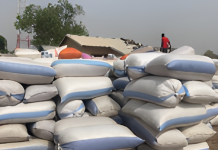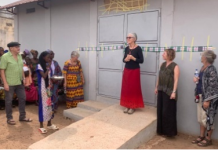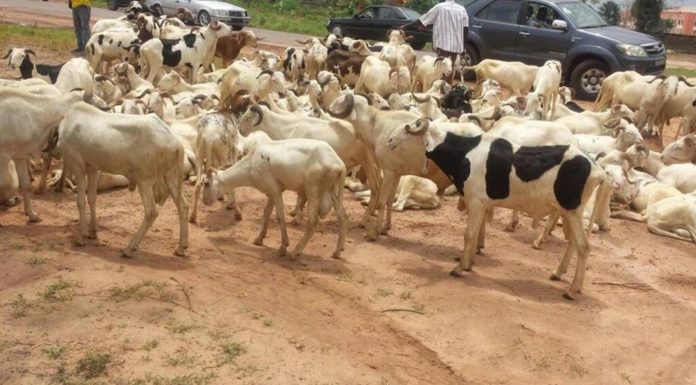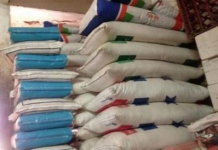By Awa B. Bah
The feast of Eid Ul Adha commonly known as ‘Tobaski’ is celebrated every year by the Muslim faithful. However this year’s ‘tobaski’ ram sales across the country has been marred by the scarcity of rams which used to be brought in their numbers from neighbouring Senegal and Mauritania, as the day draws near. This has also led to exorbitant prices for buyers for this years’ feast because the prices of rams keep on rising every year, and the situation keeps getting more and more frustrating for many family heads who cannot afford it.
The prices of other basic food commodities such as cooking oil, onion, Irish potato to name a few, are all increasing and information gathered by this reporter indicate that a medium size ram at Abuko and other buying points, cost between D9,500 to D10,000.
This reporter was out and about to sample the views and opinions of people on the scarcity of rams and their high cost. According to some ram sellers, the rise in taxes on imported sheep by the authorities is to be blamed while others blame those who sell at exorbitant prices for doing so at their own selfish interest.
They called on the authorities to put measures on the promises they made on taxes and business reforms in their agendas.
This reporter engaged ram dealers at Abuko and Brikama selling points as well as those who ply the streets of greater Banjul area, herding their sheep. Most of them complain of the high taxes levied on them at border entry points of the country and the cost of transportation due to high fuel prices. Mahmud Jallow an importer of rams from Senegal who sells at Abuko, said this year’s season is the slowest since he started bringing rams into this country. Jallow decried this as a result of the heavy taxes levied on them and said they cannot sell at a loss.
Samba Sowe who sells at the Brikama ‘Daraal’ said there are many factors responsible for the increase of this year’s price of rams; but that the depreciation of the dalasi to the CFA is the prime factor. He said other factors such as delays at the border entry points, high cost of crossing the ferry, animal feed, documentation, checkpoints and other expenses, all contribute to the cost of prices for this year’s rams. ‘‘I have spent over twenty seven hours at the ferry,” he said; that Gambians need to know that most of the livestock comes from neighbouring countries, and call on the authorities to participate in creating the enabling environment for such businesses during the feast.
Buyers Ali Cham at who was found at Abuko and Aja, a woman who was met at Westfield, lament on the high price of this year’s ‘tobaski’ rams. Both noted that ‘tobaski’ is a holy feast known for sharing and caring amongst Muslims as well as in assisting the needy, should not be used by business persons to make their selfish gains. Awa Mbaye Fall who was met at the Bakau Stadium also complained of the exorbitance of this year’s price of rams. She indicated that the underprivileged will find it difficult to purchase rams and other commodities to fulfil their religious obligation this year.
One Sulayman Jassey said Government needs to review the export and import policies for the country and plan better for such feasts like ‘tobaski’, Ramadan, Christmas, etc., so that the people can see themselves during the celebrations; that how can those who cannot afford to buy a bag of rice, forego such an important necessity and buy a ‘tobaski’ ram for an exorbitant price. He called on the Government of Adama Barrow to intervene and rectify the anomalies going on at the markets in terms of high prices. He appealed to business persons to bring down the prices during and even after the holy feast of ‘tobaski’ and urge all Muslims in the country especially those who are well-off, to help the needy.





















